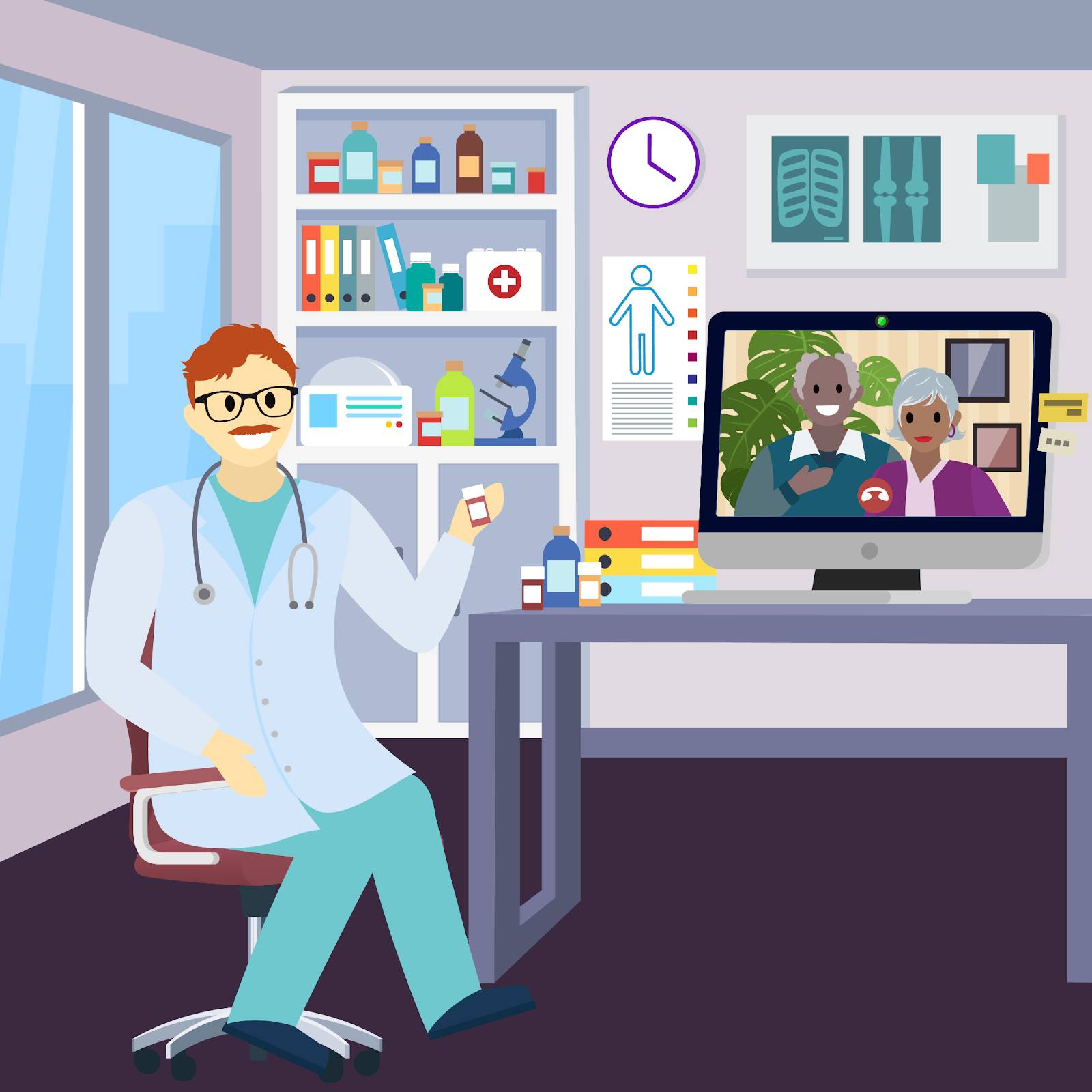Work with Agentforce Life Sciences for Pharma
Learning Objectives
After completing this unit, you’ll be able to:
- Identify Life Sciences Cloud end users in a typical pharma organization.
- Describe end users’ jobs to be done.
A Day at Cumulus Pharma
Olivia, CIO at Cumulus Pharma, wants to see how teams actually work. She spends a day with providers, patients, and internal teams across medical, commercial, and support functions to understand how Life Sciences Cloud and Agentforce help keep people focused and timelines moving.

Let’s meet the key players and see how they use the platform.
Key Players and Their Jobs to Be Done
While a lot of people use Life Sciences Cloud, these are the key players.
- Healthcare professional
- Patient
- Patient services representative
- Field service representative
- Medical science liaison
- Key account manager
Let’s go over each role.
Healthcare Professional (HCP)
HCPs manage full panels of patients, strict schedules, and complex compliance requirements. They expect short, relevant interactions across their preferred channels and clear follow-through from pharma. That means fast access to therapy information, simple enrollment in support programs, and timely answers to medical questions.
Most HCPs work within larger healthcare organizations (HCOs), such as hospitals, clinics, or integrated delivery networks. Life Sciences Cloud helps pharma teams understand not just the provider, but also the organization they work within, so engagement strategies align with both clinical roles and institutional priorities.
HCPs engage with Life Sciences Cloud through secure provider portals, rep visits, email, remote sessions, and MSL interactions, all connected to a common system of record.
What HCPs can do:
- Enroll eligible patients in Patient Services Programs and clinical trials, with consent and documentation handled seamlessly.
- Submit and track medical information requests and adverse event reports, with a full audit trail.
- View coverage guidance, prior authorization status, and downloadable patient benefits summaries.
- Receive visit follow-ups and approved digital content from field reps, tailored to their specialty and preferences.
- Interact with MSLs to receive peer-reviewed evidence and ask clinical questions.
- Access approved education, product messaging, and samples through portal or rep engagement.
- Respond to surveys or digital outreach with activity tracked for insight and planning.
Patient
Patients are managing illness, logistics, and daily life all at once. They want clear steps, fewer surprises, and support that fits their situation. That includes simplified enrollment, transparent coverage, timely reminders, and quick ways to ask for help.

Like providers, patients typically access Life Sciences Cloud through secure portals. Here’s what patients can do:
- Enroll in support programs and trials, with consent captured and documentation uploaded in one place.
- View financial coverage and prior authorization status through generated summaries.
- Apply for and track financial assistance and copay support when available.
- Receive reminders for labs, refills, and appointments, and message coordinators with questions.
- Report adverse events and complete assessments that feed directly to support teams.
- Access education tailored to their treatment, language, and care stage.
Patient Services Representative (PSR)
PSRs support patients through access and adherence. They guide patients through coverage, connect them to financial support, and coordinate care with providers and specialty pharmacies.
PSRs work in a centralized console within Life Sciences Cloud.
What PSRs can do:
- Enroll patients in therapy programs and capture consent and documentation.
- Run pharmacy benefits verification and generate AI-powered patient benefits summaries.
- Manage prior authorization steps and status tracking with automated reminders.
- Enroll and monitor patients in financial assistance and copay programs.
- Coordinate referrals, first fills, and refills through pharmacy integration.
- Log patient inquiries and send updates to providers and internal teams.
Field Service Representative (FSR)
FSRs connect with HCPs to share timely content, collect insights, and support therapy adoption. With large territories and tight schedules, they need fast context, compliant materials, and coordinated follow-ups.
FSRs work in the account workspace in Life Sciences Cloud.
What FSRs can do:
- Review recent activity, clinical interest, affiliations, and open requests before a visit.
- Capture visit notes, medical inquiries, insights, and orders in one place.
- Trigger follow-up tasks for medical, service, or access teams.
- Share approved content and track usage for compliance.
- Record competitive insights and HCP feedback tied to the account and plan.
- Use territory plan guidance to focus on priority HCPs and align with KAM strategy.
Medical Science Liaison (MSL)
MSLs are scientific partners to HCPs and Key Opinion Leaders (KOLs). They translate complex evidence into clear guidance and close loops on medical questions. They need fast context, consistent sources, and clean handoffs to safety and medical information teams.
MSLs work in a unified console connected to Life Sciences Cloud and contribute approved content to secure portals when appropriate.
Here’s what MSLs can do:
- Triage and resolve medical information requests with a clear view of the requestor, history, related products, and prior responses.
- Draft compliant responses using approved references and literature, then route for medical review when needed.
- Share evidence with HCPs and KOLs and capture insights that flow back to the account plan and medical strategy.
- Escalate safety signals and adverse events for investigation with full traceability.
- Track case status, service levels, and follow-ups so nothing stalls.
- Propose or publish approved content to HCP portals to reduce repeat inquiries.
Key Account Manager (KAM)
KAMs coordinate complex engagements across large systems of care. They align cross-functional teams to shared goals, ensuring that medical, commercial, and service efforts reinforce one another.
KAMs manage strategy execution in Life Sciences Cloud through structured account plans.
What KAMs can do:
- Build account plans with measurable goals, tactics, and tasks.
- Map stakeholders and decision-makers across HCPs, HCOs, and influence networks.
- Monitor engagement signals from visits, inquiries, programs, and outcomes.
- Track access changes like formulary status, prior auth criteria, and coverage shifts.
- Coordinate field and medical engagement against shared timelines and milestones.
Wrap Up
Olivia finishes her day with a clearer view of how Life Sciences Cloud supports everyone across the pharma ecosystem—from patients and providers to field teams, medical liaisons, and account managers. Each role operates within a shared system that streamlines access, improves outcomes, and keeps engagement focused and compliant.
Nice work! You now have a solid understanding of how Life Sciences Cloud transforms pharma operations. To explore specific capabilities across commercial, medical, clinical, and patient engagement, check out the links in Resources.
Resources
- Salesforce Help: Administer Life Sciences Cloud
- Salesforce Website: Connecting Patients to Therapies and Devices Faster with AI